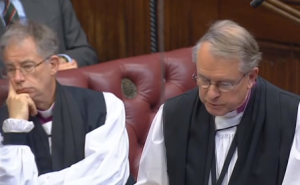We want to see laws requiring schools to hold acts of worship abolished.
The laws are archaic, unnecessary and breach children's freedom of religion or belief.
The United Kingdom is the only Western democracy which legally imposes worship in publicly funded schools.
The law in England and Wales provides that children at all maintained schools "shall on each school day take part in an act of collective worship". Northern Ireland and Scotland have similar laws.
Even in schools with no religious designation, the worship must be "wholly or mainly of a Christian character".
School assemblies are an important feature of school life. They foster a sense of community in schools and promote the moral and social development of pupils.But acts of worship are neither necessary nor desirable to achieve these educational goals.
The majority of the public (52%) say school assemblies should be about moral issues, whereas just 26% agree that they should feature religious worship.
Many schools ignore the law, but where it is enforced it causes division and discrimination, as well as opening the door to evangelism and proselytising.
Parents have the right to withdraw children from collective worship, but many this is an unreasonable imposition on both themselves and their children. Parents should never have to withdraw their children from any part of the school day to ensure their rights to raise their child according to their own religious or philosophical convictions are respected.
Collective worship laws are outdated relics of a society unrecognisable from the diverse and pluralistic Britain of today, where citizens hold a wide variety of religious beliefs, and increasingly, no religious beliefs. The abolition of collective worship is long overdue.
Take action!
1. Write to your MP
Ask them to help end compulsory worship in schools
2. Share your story
Tell us why you support this campaign, and how you are personally affected by the issue. You can also let us know if you would like assistance with a particular issue.
3. Join us
Become a member of the National Secular Society today! Together, we can separate religion and state for greater freedom and fairness.
Latest updates
Government opposes moves to protect secular schools’ ethos
Posted: Wed, 15 Jun 2022 16:56
The government has refused to support amendments to a bill which would help nonreligious academies protect their secular ethos.
Amendments to the Schools Bill, which was debated in the House of Lords on Monday, aimed to replace compulsory collective worship at nonreligious academies in England with inclusive assemblies, and religious education with pluralistic religion and worldviews education.
It would also require greater scrutiny of the potential impact to the school's ethos if a nonreligious academy applied to join a religious multi academy trust (MAT).
But Baroness Joanna Penn, responding on behalf of the government, said the government "do not agree" with the amendments, which were subsequently dropped.
The moves were also opposed by the bishop of Chichester Martin Warner, who "strongly" urged Lords not to support them.
Collective worship
Baroness Molly Meacher and Baroness Janet Whitaker moved two amendments on collective worship – one to remove the duty from nonreligious academies, and one requiring faith-based academies to provide pupils with a meaningful alternative to collective worship if they are withdrawn.
Meacher said it was "pretty remarkable" that the UK is the only sovereign state to impose worship in all state schools, despite the UN Committee on the Rights of the Child repeatedly urging the UK to repeal these laws. She said most parents were not aware of the law but out of those who were, 60% opposed it being enforced. She added that most parents consider religious worship to be inappropriate content for school assemblies.
She highlighted that many parents have "no option but to send their child to a religious school", and those withdrawn from worship at these schools "often just have to sit outside the door—almost like a naughty child—or are left in an empty classroom with nothing to do".
But Penn rejected the amendments as "not necessary". Warner said an end to compulsory worship in schools would be "excessive".
Religious education
Lord Jim Knight moved amendments to replace religious education (RE) with religious and worldviews education which is "objective, critical and pluralistic" in nonreligious academies and as an option in religious academies.
They also required religion and worldviews education in nonreligious academies to be "explicitly inclusive of non-religious beliefs".
The amendments would bring England closer in line with Wales, which last year replaced RE with religion, values and ethics education.
Penn objected to the amendments, saying that when children are admitted to a faith school, "their parents are aware of this and expect it to be part of the school's ethos and culture", despite Meacher highlighting that faith schools are unavoidable for many parents.
Penn added: "I am unaware of significant demand from parents who withdraw their children from religious education to have this replaced by education representative of a wider range of religious and non-religious beliefs".
The National Secular Society regularly assists parents who wish to withdraw their children from RE at faith schools because they object to its biased and confessional nature.
Protecting secular academies joining religious MATs
Baroness Christine Blower moved an amendment to ensure nonreligious academies intending to join a religious MAT must hold a comprehensive consultation focused on the impact on the secular ethos of the school.
Blower said there are parents and carers "who would seek to avoid institutions of a religious character, believing that for them education should be in institutions with a secular ethos".
Warner called the amendment "unhelpful" and said church MATs "provide a commitment to supporting the individual ethos of the school".
But NSS research has demonstrated how the development of mixed multi-academy trusts has enabled religious groups to increase their influence in thousands of schools in England, including those with no religious character.
Employment discrimination in religious academies
Baroness Meacher also moved an amendment to remove exemptions from equality and education law that allow religious academies to discriminate on the basis of religion or belief for the purposes of appointment, promotion, remuneration or termination of employment of teachers.
Meacher said many schools "currently do discriminate even where the employment equality directive makes it clear that this is not allowed".
She pointed to recent reforms in Northern Ireland which removed similar exemptions.
Penn said the government supports the "freedoms and protections" enabling faith schools to discriminate on the basis of religion or belief.
NSS comment
The NSS, which has met with the Department for Education to discuss the Schools Bill, said the withdrawal of these amendments was "deeply disappointing, but not wholly surprising."
NSS head of campaigns Megan Manson said: "If accepted, the amendments would have gone a long way to making academies in England more inclusive for all, and to protecting the secular ethos of academies with no religious character.
"They would also have helped bring England in line with Wales and Northern Ireland, which have recently made progressive steps towards inclusive education.
"In this debate, the government showed a highly dismissive and contemptuous attitude to the concerns raised by the public regarding collective worship, RE and faith schools.
"It must start listening more to the public about what schools they want, and less to religious interests including the bishops appointed to the House of Lords".
Image: 14995841 from Pixabay
NSS criticises move to entrench faith school protections in law
Posted: Wed, 25 May 2022 15:02
The National Secular Society has criticised a move to enshrine protections for the ethos of faith schools into law as a missed opportunity for child rights.
The Schools Bill will put into law that religious institutions in England must have a "clearly defined role" in the running of schools with a religious character if they become academies.
At present these protections only exist in the funding agreements for academies and not in primary legislation. Religious institutions which control faith schools have complained these "weaker arrangements" hold back some faith schools from converting to academies.
There are no plans for equivalent laws to protect the secular, community ethos of academies without a religious character.
The Schools Bill will also ensure faith schools which become academies provide religious education (RE) and collective worship "in accordance with the tenets and practices" of their religion.
The NSS is campaigning for reform of RE so that it is broad, balanced and objective in all schools, and to abolish laws requiring daily acts of collective worship. The United Nations have recommended the UK repeal its laws requiring collective worship in all state schools.
But the government has said that a change in law on collective worship is "unnecessary", adding that collective worship "encourages pupils to reflect on the concept of belief".
Bishops' bench "very grateful" for faith school protections
During the bill's second reading in the House of Lords on Monday, Paul Butler and Steven Croft (pictured), who sit in the Lords as of right as Anglican bishops, welcomed the move.
Butler said the provisions set out how the "settlement between Church and state continues" and said the Church of England was "very grateful" for the way in which ministers have engaged with the Church so that "areas of policy with specific relevance to the future of schools on sites that have been provided by the Churches are addressed".
But other peers spoke out in favour of more inclusive education. Baroness Joan Bakewell highlighted the difficulties faced by nonreligious parents who have no option but to send their children to faith schools. She said the right of withdrawal from RE and collective worship is "demeaning and discriminatory, and often results in children languishing aimlessly in empty classrooms", and said the situation "needs to be challenged".
Baroness Molly Meacher said: "I hope this House can ensure that the content of religious education and worship in all schools reflects the full ambit of freedom of religion and belief and that a pluralistic and critical approach is adopted".
Cracking down on unregistered schools
The NSS has welcomed a separate provision in the Schools Bill which will give authorities greater powers to tackle illegal unregistered schools – something the NSS has long lobbied for.
Peers also welcomed the bill. Baroness Meacher said: "We know that the education provided in many unregistered religious schools is narrow in scope, predominantly scriptural in content and deeply conservative, intolerant and extreme in outlook.
"Because these schools have been able to evade inspections, bad practices of all kinds appear to have developed. Former pupils of such illegal settings told an all-party parliamentary group in December of the physical, emotional and sexual abuse they had suffered. They also talked of the narrow religious curriculum, with no English, maths or science in their school experience".
NSS comment
NSS chief executive Stephen Evans said: "We very much welcome the measures to tackle unregistered religious schools. We look forward to working with the government through the bill's passage to ensure the legislation is robust enough to put an end to children being systematically undereducated in unsafe illegal schools.
"But the decision to freshly legislate for collective worship and faith-based RE is alarming.
"In its last periodic examination of the UK's human rights record, the UN Committee on the Rights of the Child asked what steps the government was taking to repeal such laws, but here they are further entrenching them in statute. Meanwhile, there are no such protections for the secular ethos of community schools.
"Any new bill to raise education standards should also raise human rights standards by removing archaic requirements for children to take part in religious worship."
The NSS has met with Department for Education to discuss their concerns with the bill.




